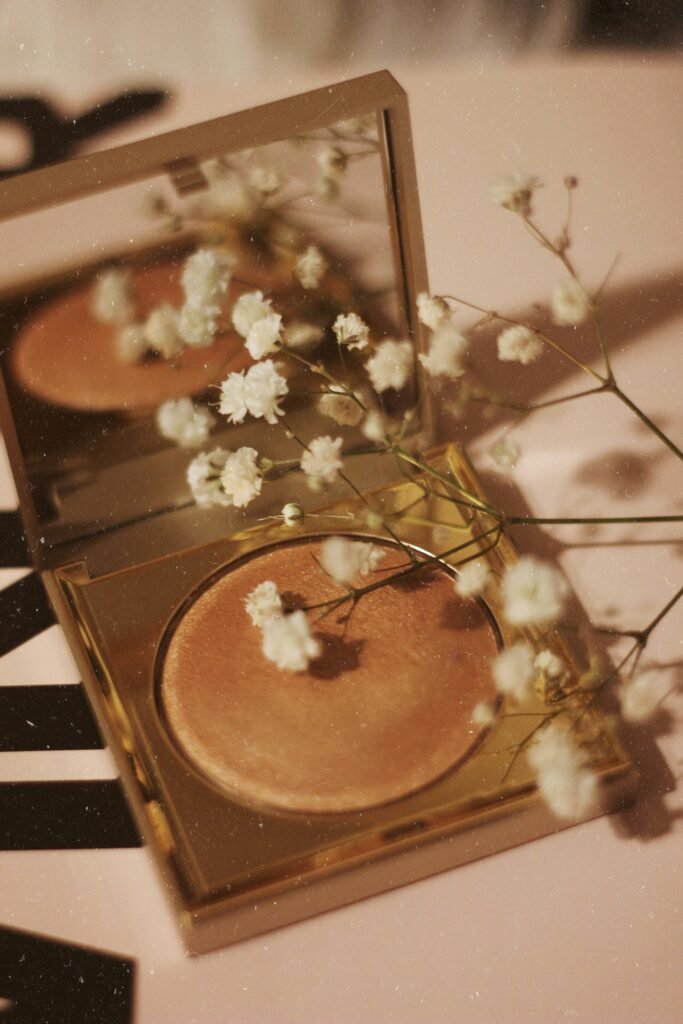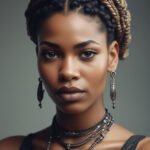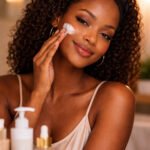
Have you ever wondered how African women maintain and care for their luscious, beautiful locks? Well, look no further, as this article will provide you with an insightful glimpse into the world of African hair care. From traditional methods passed down through generations to modern techniques, you will discover the secrets behind their haircare rituals and the essential products that keep their hair strong, healthy, and radiant. Get ready to unlock the key to stunning hair as we take a closer look at the fascinating world of African hair care.
Understanding the uniqueness of African hair
African hair is known for its uniqueness and diversity, and understanding its characteristics is crucial for effective hair care. What sets African hair apart is its tight, coiled, and sometimes curly texture, which makes it more prone to breakage and dryness compared to other hair types. The individual hair strands are also usually thicker in diameter, making the hair overall more voluminous and full-bodied.
Various African Hairstyles
African hairstyles have been an integral part of African culture for centuries, and they hold great significance in expressing identity, creativity, and cultural heritage. One of the most popular African hairstyles is braiding, which involves interweaving strands of hair to create intricate patterns and designs. This technique not only showcases the beauty of African hair but also carries cultural and historical meanings, often representing social status, marital status, or age.
In addition to braiding, protective hairstyles like wigs, weaves, and extensions have gained popularity among African women. These hairstyles serve as a protective barrier, preventing manipulation and excessive styling that can cause damage to the hair. They also offer versatility and allow for experimentation with different lengths, colors, and textures without compromising the health of the natural hair.
Furthermore, the Afro, twists, and dreadlocks have become iconic African hairstyles that embrace natural texture and promote self-acceptance. These styles celebrate the beauty of African hair in its most natural form, promoting a sense of pride and empowerment.
Throughout history, African hairstyles have evolved and adapted, reflecting changes in cultural, social, and political contexts. From ancient civilizations to the present day, African hairstyles have showcased resilience, creativity, and cultural heritage.
African hair cleaning routines
Maintaining clean hair is an essential part of any hair care routine, and African hair is no exception. However, due to its unique characteristics, African hair requires specific considerations when it comes to washing. The frequency of washing African hair varies depending on the individual’s preference and hair type.
Using a suitable shampoo and conditioner is crucial for African hair care. Look for products that are sulfate-free and moisturizing, as these will help retain the natural oils in the hair and prevent excessive drying. It is also important to detangle the hair gently while washing to avoid breakage.
Deep conditioning treatments are highly recommended for African hair. These treatments help to replenish moisture, improve elasticity, and reduce frizz. They can be done weekly or bi-weekly, depending on the hair’s needs. Additionally, paying attention to the scalp is vital in an African hair care regimen. Maintaining a clean and healthy scalp promotes overall hair health and growth.
Moisturizing African hair
Moisture is key to maintaining healthy African hair, as it is prone to dryness. Natural oils play a significant role in moisturizing and nourishing African hair. Some popular natural oils for African hair include coconut oil, shea butter, and Aloe Vera. These oils help seal in moisture, prevent breakage, and add shine to the hair.
Homemade moisturizers are a great option for those who prefer natural ingredients. DIY recipes often include a mixture of natural oils, such as olive oil, castor oil, or jojoba oil, combined with aloe vera gel or honey. These homemade moisturizers can be applied to damp hair or used as a pre-shampoo treatment.
There are also many commercial moisturizing products designed specifically for African hair. These products are formulated to provide optimal hydration and nourishment, catering to the unique needs of African hair types. It is important to choose products that are free from harsh chemicals and that suit your hair’s specific needs.
Maintaining consistent moisture is crucial for African hair, and moisturizing routines should be tailored to individual hair types. Some prefer to moisturize daily, while others find that every two to three days is sufficient. Paying attention to your hair’s needs and adjusting your routine accordingly will help keep your hair healthy and hydrated.

Styling and grooming African hair
Styling African hair can be a fun and creative process, but it is important to prioritize the health and integrity of the hair. When using styling tools and heat appliances, it is crucial to apply heat protectant products to minimize damage.
Hair wrapping techniques, such as using a silk or satin scarf or bonnet, can help maintain moisture, reduce friction, and preserve hairstyles overnight. These techniques also prevent hair breakage and tangling, allowing for more extended wear of hairstyles.
When it comes to hair accessories, it is essential to use them safely. Opt for accessories that are gentle on the hair, such as snag-free hair ties or satin scrunchies. Avoid using accessories that are too tight or may cause tension, as this can lead to hair breakage and damage.
Use of natural hair treatments
Natural hair treatments can provide additional nourishment and benefits to African hair. Ingredients like shea butter, coconut oil, and Aloe Vera are known to promote hair growth, improve hair texture, and add shine.
Henna, a natural dye derived from the henna plant, is another popular treatment for African hair. Apart from adding color, henna also conditions and strengthens the hair, offering a natural alternative to chemical dyes. Other organic treatments, such as yogurt or avocado masks, can also provide hydration and nourishment to African hair.
Diet and its impact on African hair
A balanced diet plays a significant role in maintaining healthy hair, including African hair. Consuming foods rich in proteins, vitamins, and minerals provides the necessary building blocks for hair growth and health. Foods such as lean meats, fish, nuts, fruits, vegetables, and whole grains are beneficial for promoting hair health.
Hydration is equally important for hair health, and drinking an adequate amount of water ensures that the hair and scalp remain hydrated. Dehydration can lead to dry and brittle hair, making it more susceptible to breakage.
Protective hairstyles and their benefits
Protective hairstyles not only serve as a means of creative expression but also play a crucial role in maintaining the health and growth of African hair. These hairstyles involve minimal manipulation, tucking the ends away, and protecting the hair from external factors such as heat, wind, and harsh weather conditions. By minimizing stress and friction on the hair, protective hairstyles reduce breakage, promote length retention, and support overall hair health.
There are numerous examples of protective hairstyles, including box braids, cornrows, twists, and buns. Each style offers its unique benefits and can be customized to suit individual preferences. Preparation and maintenance of protective hairstyles involve ensuring proper installation, regular moisturization, and careful removal to minimize damage to the hair.
The cultural significance of hair care
Hair holds great significance in African culture and tradition. Historically, hairstyles have been used to convey messages, signify social status, denote tribe affiliation, and celebrate cultural identity. For many African women, their hair is a representation of their heritage, self-expression, and pride.
The impact of colonialism on African hair care cannot be overlooked. During the colonial era, African hairstyles and natural hair textures were vilified and deemed inferior, resulting in a widespread adoption of Eurocentric beauty standards. However, in recent years, there has been a resurgence of Afro-hairstyling as an act of resistance and empowerment, reclaiming and celebrating African beauty.
Modern trends in African hair care
In recent years, there has been a significant shift towards embracing natural hair among African women, spearheading the natural hair movement. This movement encourages women to embrace their natural hair texture, challenging societal norms and promoting self-acceptance. It has been propelled by African celebrities who proudly showcase their natural hair on various platforms, inspiring others to do the same.
The African hair care industry has responded to the growing demand for products suitable for African hair. Many commercial hair products, including shampoos, conditioners, and styling products, have evolved to cater specifically to the unique needs of African hair. This includes offering a wide range of products for different hair types, textures, and concerns. Additionally, the business of African hair care has expanded, with an increasing number of black-owned hair care brands emerging in the market.
In conclusion, understanding the uniqueness of African hair is essential for effective hair care. From the various African hairstyles to the importance of washing, moisturizing, and styling, African women have developed comprehensive routines to maintain the health and beauty of their hair. These routines not only serve practical purposes but also hold cultural significance, reflecting a rich heritage and celebrating African identity. With the rise of the natural hair movement and the growing business of African hair care, African women continue to lead the way in redefining standards of beauty and embracing their natural hair.










